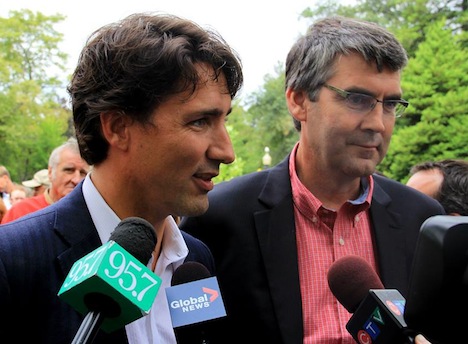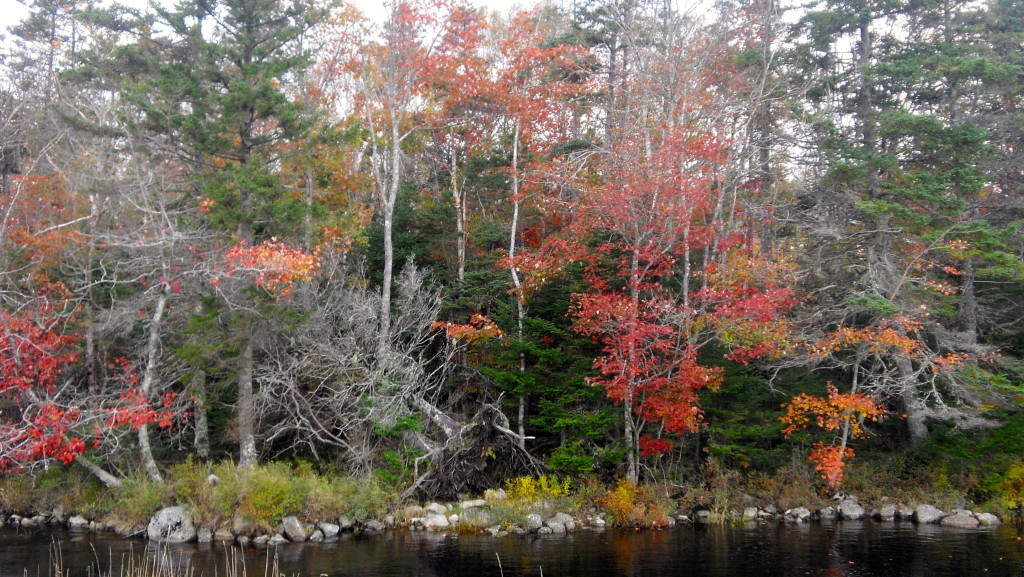No one will say it’s exactly the blockbuster story of the year, but it’s worth taking note of the landslide victory of the Nova Scotia Liberal Party last night in Atlantic Canada’s most populous province.
Take all the usual caveats — provincial politics is very different from federal politics, and the federal Liberal Party is not the same as the Nova Scotia Liberal Party. The federal Conservative Party is certainly not the same as the Nova Scotia Progressive Conservative Party. And the federal New Democratic Party remains in the opposition, while the NDP in Nova Scotia was defending a provincial government.
But the general landscape still mirrors the federal political scene in a way that makes Nova Scotia a better bellwether than other provinces, unlike in Québec, where provincial politics really does revolve around a different axis of policy issues. Or in the Canadian west, where the Progressive Conservative party in Alberta is the more center-left of the province’s two main parties, the Liberal Party in British Columbia is the center-right option, and where the conservative provincial party is simply the Saskatchewan Party. The NDP’s 2009 landslide in Nova Scotia in many ways presaged the ‘orange wave’ in the federal 2011 election, wherein the federal NDP far surpassed the Liberals to become Canada’s second-largest political party and the official opposition.
Under leader Stephen McNeil, the Liberals won more support (45.52%) than any party in a Nova Scotian provincial election since 1993, and the Liberals will hold 33 seats in the 51-member Nova Scotia House of Assembly. That’s even more than the New Democrats, under outgoing premier Darrell Dexter, won (31) in the 2009 election.
Dexter lost his own seat by a slim margin, and the NDP’s caucus will be reduced to just seven seats on 26.90% of the vote. The Progressive Conservatives, who controlled the provincial government between 1999 and 2009, won just 11 seats on 26.39% of the vote.
But it’s really hard not to see Stephen McNeil’s win as the first electoral evidence that the Liberals are back — and running strong.
McNeil and the Liberals were leading polls to return to government in Nova Scotia long before Justin Trudeau was anointed as the federal Liberal leader and all but prime minister-in-waiting. But McNeil (pictured above, right, with Trudeau, left) looks like he could be Trudeau’s older brother.
There were other lessons from Halifax for federal Canadian politics, too. It was somewhat of a relief for pollsters to have forecasted the results more or less accurately after virtually no one foresaw two high-profile recent upset victories — in Alberta in April 2012 and in British Columbia in May 2013.
It’s also a harbinger for Conservative prime minister Stephen Harper. In Alberta, where voters gave the benefit of the doubt to the Progressive Conservatives and reelected premier Alison Redford, the unemployment rate is 5%. In British Columbia, voters reelected premier Christy Clark and gave the Liberals a fourth consecutive term of government, the unemployment rate is 6.7%. Nova Scotia, without the rich mineral wealth that has resulted in a boom for western Canada, unemployment is running at 9%. That’s not a fact that will be lost on Harper, whose Tories have now fallen behind the Trudeau-era Grits in national polls.
The national unemployment rate (7.2%) lies somewhere in between the two extremes. The Canadian economy is marking equivalent or slightly higher GDP growth than the United States and in 2011, Canadian voters rewarded Stephen Harper for steering Canada through the global financial crisis without the staggering bank failures, the ragged political strife or the soaring unemployment that the United States suffered. For Harper to win in 2015, he’ll need more voters who feel like Albertans and British Columbians than Nova Scotians.

